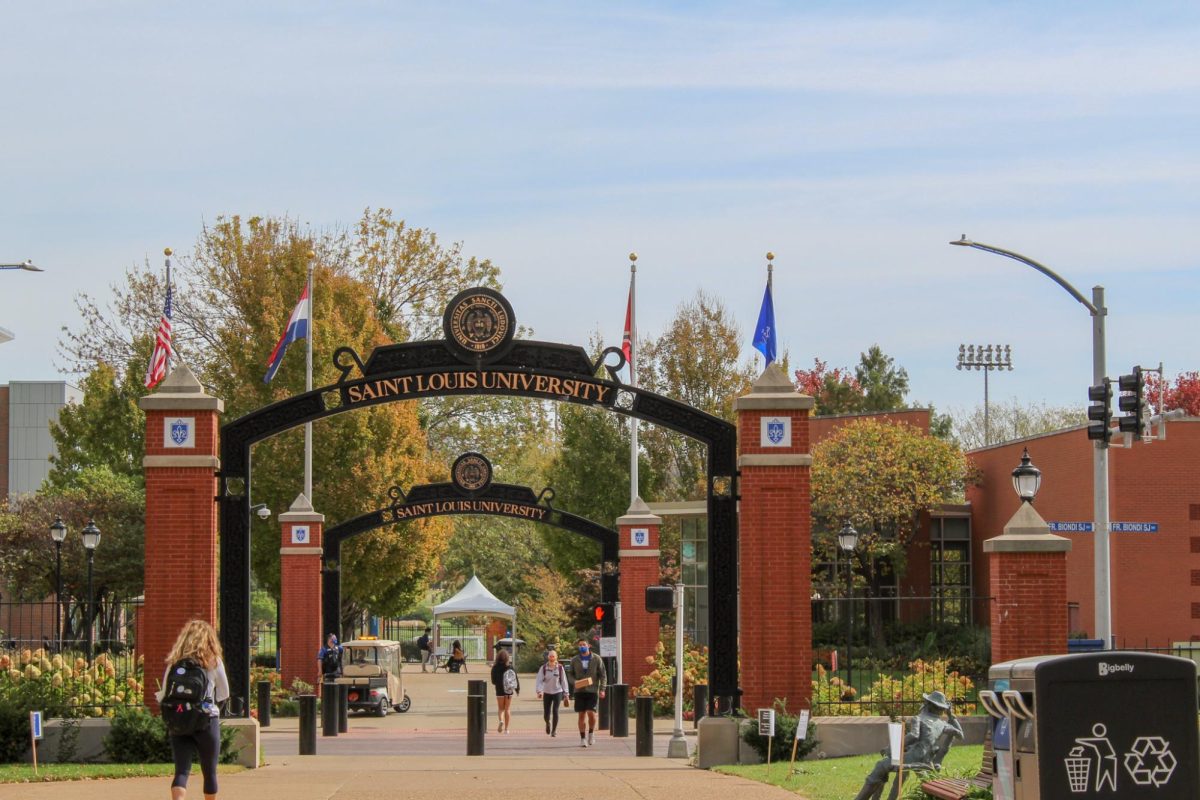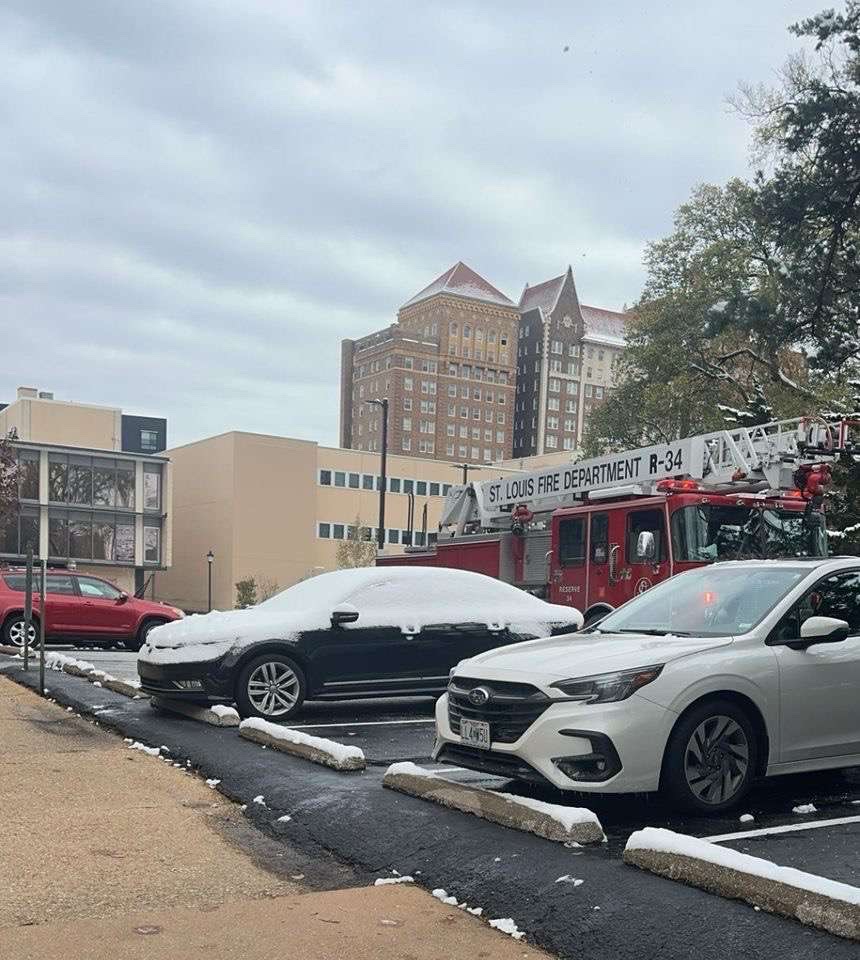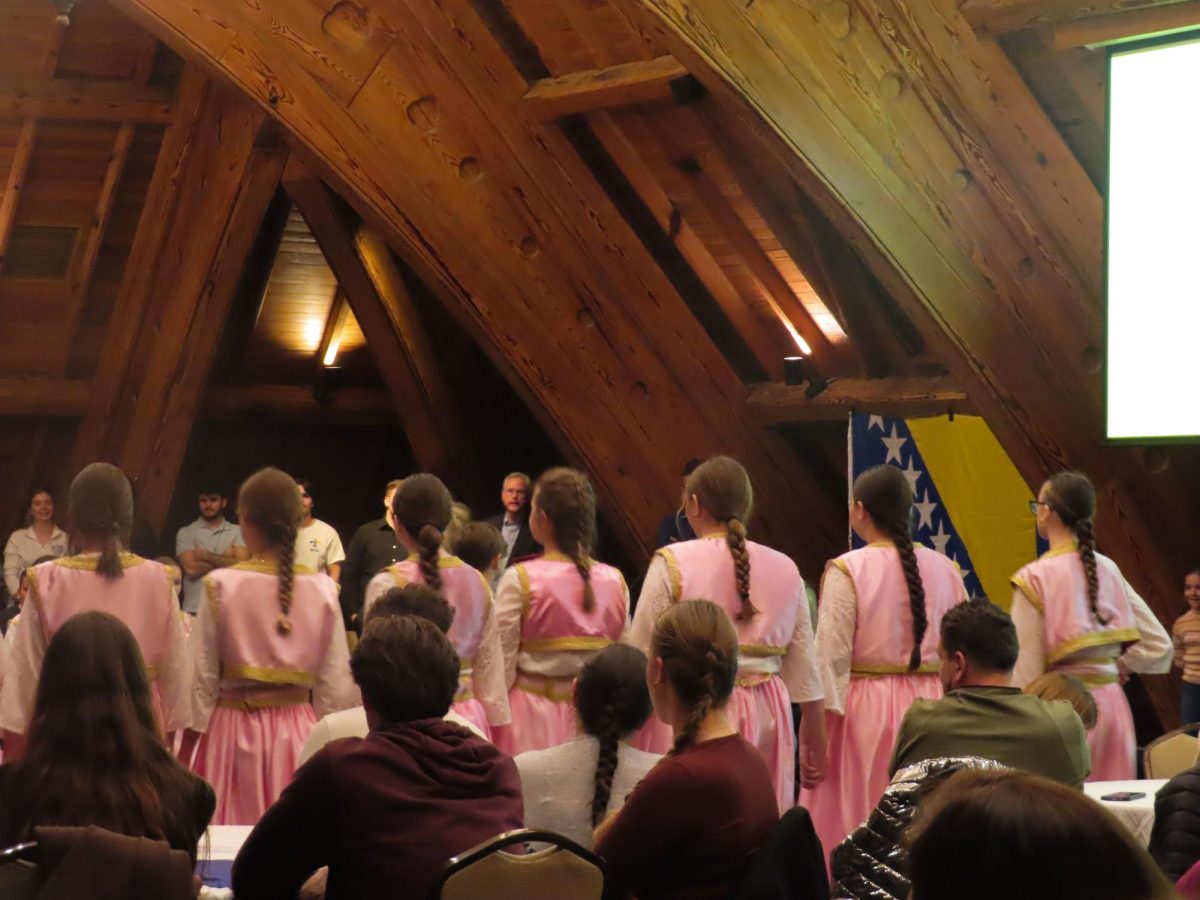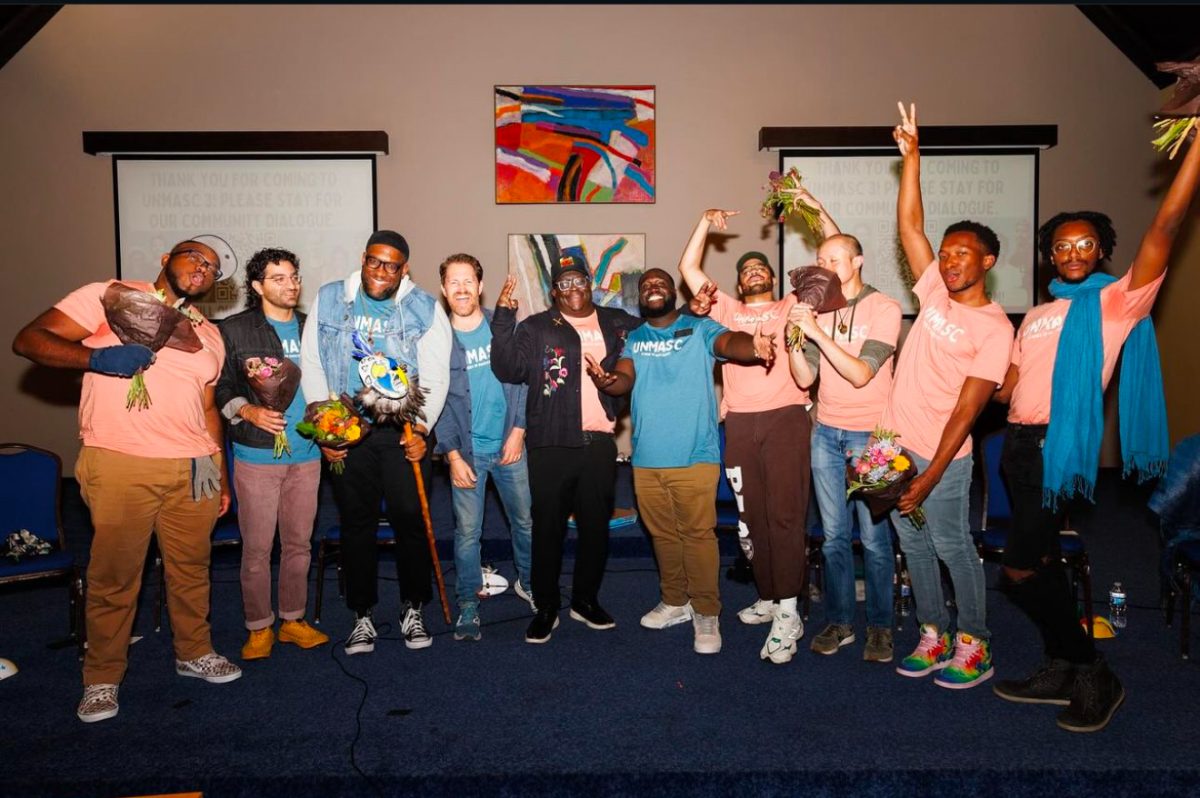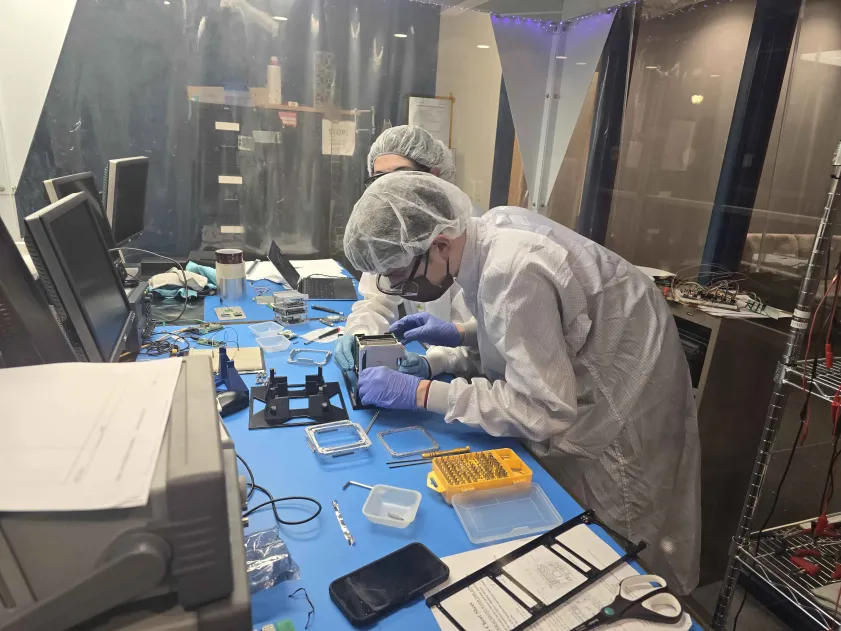No textbooks are required for Julius Hunter’s class. Instead, students will use the media as a tool to learn how it shapes the world and vice versa.
“I can’t find a better textbook than what is going on around us on any given day,” Hunter said. “So that will be our textbook.”
Hunter is teaching “The Media Under Fire” through the Department of Communication at Saint Louis University. The course will examine the role of bias, newscasters and style in local, national and cable news. Students will be taking a close look at key issues in world news.
Students assume an alternate identity, including key figures like President George W. Bush, Colin Powell or Donald Rumsfeld. The students are responsible for following the news their person makes every week, as well as being assigned a list of magazines and newspapers to read.
Through this course, Hunter aims to help students learn how to speak up and be heard.
“The meek shall inherit not much in this life,” Hunter said. “A lot of people are walked on and stepped on in life.”
Hunter began his position as vice president for community relations on Dec. 2, 2001. His role is to enhance the participation of the university in the neighboring and regional community and to bring the community into and onto the SLU campus.
Since starting at SLU, Hunter has orchestrated the “Down the Street” series. This series is in conjunction with the St. Louis Symphony Orchestra and will begin with a concert by percussionist John Kasica, on Feb. 3. Hunter has also scheduled a guest lecture on George Washington Carver for Feb. 6.
“I find that interacting with the students keeps me young, keeps me informed about what’s going on, and I’m always wanting to know what’s going on in all corners of the world,” Hunter said.
Hunter is looking forward to interacting more with the students and helping them make more contacts in the community.
Hunter earned a bachelor’s degree in elementary education from Harris-Stowe State College. After some teaching in St. Louis, he moved to Chicago where he worked as a copywriter and helped create commercials. Hunter returned to his native St. Louis and began working at Washington University in the student-affairs department.
As a participant in a documentary for KSDK Channel 5 in 1969, Hunter answered questions about African-American identity. An executive producer was impressed by his segment and asked Hunter to interview for a reporter position at the station.
After spending almost five years at KSDK Channel 5, Hunter accepted a position at KMOV Channel 4 and spent the next 28 years at the station.
“The sky is only the suggested limit,” Hunter said. He believes that this motto has helped him accomplish his goals.
His family motto, passed down from his grandmother, has also played an important role in his career — “If you ever need a helping hand, there is a perfectly good one at the end of your arm.”



